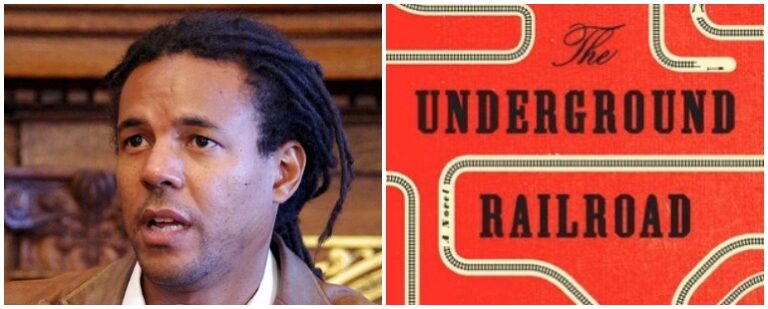The Banality of Evil in The Turn of the Screw
In 1961, German-born philosopher Hannah Arendt traveled to Jerusalem to report on Nazi officer Adolf Eichmann’s trial. Her resulting series of essays, collected and published in The New Yorker under the title “Eichmann in Jerusalem,” grapples with Eichmann’s overwhelming ordinariness—he was a man whose very language she finds riddled with “stock phrases and self-invented clichés,” and in whose narratives (both written and oral) she finds empty rhetoric, dull repetitions, and “an inability to think; that is, to think from the standpoint of somebody else.” She goes on, “No communication with him was possible, not because he lied but because he was surrounded by the most reliable of all safeguards against the words of others, or even the presence of others, and hence against reality as such.” Arendt suggests Eichmann’s evil arises from his lack of imagination—an inability to think his way into empathy and a failure to reconstruct, through precise, well-considered language, the contours and delineations of our shared reality. Cliché and banality proffer their own sort of violence—against historical fact, and against others’ lived experience.
Arendt doesn’t limit her critique to Eichmann. Gideon Hausner, the trial’s lead prosecutor, played fast-and-loose with language, building his case, she argues, on sweeping historical wrongs rather than on well-defined, specifically-worded indictments: “And the more ‘the calamity [in Hausner’s words] of the Jewish people in this generation’ unfolded,” she writes, “and the more grandiose Hausner’s rhetoric became, the paler and more ghostlike became the figure in the glass booth, and no finger-wagging (‘And there sits the monster responsible for all this’) could summon him back to life.” To Arendt, sloppy language has the capacity to turn ghostly what’s flesh-and-blood and to undermine reality by eating away at its edges, breaking it down, turning it to mist, to dust, to confabulations contrived on the one hand by banality, and, on the other, hyperbole. What Arendt is describing in “Eichmann in Jerusalem” is a drama built on cognitive dissonance. Of Eichmann, Israeli leadership expects utter monstrosity and, in its unveiling, cathartic release. What they get, however, is emptiness, shallowness, ordinariness.
Is Eichmann, then, ghost or living man? Devil or upper-management drudge? And which choice is more terrible to contemplate? Arendt’s probing inquiry into the nature of evil continues to haunt us, her phrase “the banality of evil” a kind of curse that compels us back to her essential question: Where is the evil coming from?
Henry James’ 1898 novella The Turn of the Screw exists—in a manner of speaking—as a sort of literary question not unlike Arendt’s. Are the ghosts in this ghost story actually present, or are they just extensions of the governess’s disordered mind? Or—to put it another way—if evil is present in the narrative, where is it coming from? James, of course, never tells us, and nor should he, because it’s really the question itself that matters, and the language he uses to pose it.
The nameless governess at the center of The Turn of the Screw is described by the novella’s storyteller (Douglas) as “charming,” “agreeable,” and “the youngest of several daughters of a poor country parson” who is “seduced” by a wealthy gentleman who puts out a call for a new governess, a position the gentleman describes to her “as a kind of favor, an obligation he should gratefully incur,” and to which she responds eagerly. Douglas is quick to tell his audience that the young woman falls in love with her employer after seeing him only twice, and that “There were others . . . who hadn’t succumbed,” implying other women had applied for the position and weren’t swayed by his method of seduction but were, rather,
somehow simply afraid. It sounded dull—it sounded strange; and all the more so because of his main condition . . . [t]hat she should never trouble him—but never, never: neither appeal nor complain nor write about anything; only meet all questions herself . . . [s]he promised to do this, and mentioned to me that when, for a moment, disburdened, delighted, he held her hand, thanking her for the sacrifice, she already felt rewarded.
Douglas carefully constructs a protagonist primed for manipulation who shows deference to her employer’s superior social rank, and who is willing, in effect, to cut herself off from communication with him. She’s been deemed, by Bly’s (a grand, English manor) owner, to be an appropriate caretaker of his authority, an authority that’s part and parcel of a larger system that orphaned his nephew and niece, Miles and Flora. (Their grandparents were colonists in India, their father a military man presumably killed in the service of the British empire.) It’s an authority that enables Bly’s owner to delegate his responsibilities and act the imperialist in absentia.
For Arendt, acquiescence, like cliché, is the result of lazy thinking—a kind of vacuity that enables larger forces of violence to maintain control. As she says of the German people, “the practice of self-deception had become so widespread—almost a moral prerequisite for survival,” so might one imagine that inside the silence her “master’s” absence creates, James’s governess begins to broaden the conversations she has with herself into self-deception. She begins her own narrative with a sort of bosom-heaving sigh (“I remember the whole beginning as a succession of flights and drops, a little seesaw of the right throbs and the wrong”), then describes her new charges, the children Miles and Flora, with an overblown, romantic giddiness. Of Miles in particular the governess says, “He was incredibly beautiful . . . everything but a sort of passion of tenderness for him was swept away by his presence. What I then and there took him to my heart for was something divine that I have never found to the same degree in any child—his indescribable little air of knowing nothing in the world but love.” The governess’s romantic grandiloquence could be a bandage on a wound, a gauze over emptiness, but Arendt might argue that her rhetoric is, in fact, a “prerequisite for survival” that in turn erases Miles’s complexity and cements her role at Bly, whose class structure mimics, on a small scale, the larger, late-Victorian world beyond its borders.
Despite the governess’s rosy view of her circumstances at the story’s beginning, Bly has a sordid past. Miss Jessel, Bly’s previous governess, died mysteriously, as did Peter Quint, a valet, and there are rumors (spread by other servants) of an extramarital affair between the two, as well as an unseemly “closeness” they shared with the children. Miss Jessel comes to believe the house and grounds are haunted by their ghosts and that they intend on “possessing” and further “corrupting” the children. Quint—both in life and in death—represents social and sexual transgression, as well as brute physicality. He’s combative, sensual, base, wearing the master’s clothes, acting the master himself, taking for a mistress Miss Jessel (a member of a higher social class), and is referred to by Mrs. Grose, Bly’s housekeeper as “much too free,” to which the governess responds, “Too free with my boy?” immediately admitting to a desire for possession, disgust at the idea of inter-class relationships, and a reductive view of Miles as someone who could be possessed. Meanwhile, Miss Jessel’s ghost serves as a cautionary tale for the governess—a shadow whose dark tragedy spoils the scene, whose well-touted “respectability” has been destroyed by her indiscretions with Quint.
It’s possible to imagine the governess sees Miss Jessel as her dark twin, the ghastly result of her own desires—a woman who has forgone her social obligations to Bly’s hierarchy and suffered for it. But where is the “real” evil coming from? It’s a question that sends Flora into “hysterics” and Miles into a sort of sad confusion at the end of the novella when the governess, for a moment, lifts the veil from her own narrative to (as Arendt argues Eichmann was incapable of doing) imagine herself back into reality. She says, “and within a minute there came to me out of my very pity the appalling alarm of his being perhaps innocent. It was for the instant confounding and bottomless, for if he were innocent what then on earth was I?” She is “paralysed, while it lasted, by the mere brush of the question.” In the context of what the governess views as Jessel’s and Quint’s “sordid” narrative, James asks us to call the governess’s motivations into question; perhaps, in an attempt to protect Miles and Flora from evil, the governess enacts evil on the children herself, her “exorcism” having been founded on a psychologically-imprisoning view of social respectability, childhood innocence, and Christian morality. The nature of the governess’s capacity to question herself morphs over the course of the novella; she begins by wondering whether other characters can see what she sees, then ends at the possibility of her complicity in Flora’s psychological break and Miles’ death. It’s her own “innocence” the ghosts punctuate and puncture, ripping pages from her clichéd storybook-life at Bly.
And it’s from inside the governess’s “storybook” that the ghosts appear, at the most banal of moments: “plump,” the governess says, “one afternoon, in the middle of my very hour,” when she is alone and “take[s] a turn around the grounds [to] enjoy, almost with a sense of property that amused and flattered [her], the beauty and dignity of the place.” It’s from the garden that she first encounters the ghost of Peter Quint, “high up, beyond the lawn and at the very top of the tower” that she describes as “dating, in [its] gingerbread antiquity, from a romantic revival.” At first, the governess mistakes Quint for Bly’s landlord but discovers after her “shock” and “surprise” that the man is someone she doesn’t know. She “bridles” at “the sense of how [her] office seem[s] to require that there should be no such ignorance and no such person,” balking too at the man’s “sign of familiarity of his wearing no hat.” In other words, the ghost’s presence breaks her idyll and interjects itself into her fantasy of ownership and superiority.
Henry James himself, in a letter to Dr. Louis Waldstein, admits to feeling the need to “save” The Turn of the Screw from its “horrible” subject matter. “It needed some infusion of beauty or prettiness, and the beauty of the pathetic was the only attainable—indeed the inevitable,” he writes. So he found himself turning to pathetic fallacies, to “prettiness” as a means of masking over the horror, creating—in the governess—a character who is herself a romantic cliché, and who finds the house (and her new life in it) to be, for example, “a castle of romance inhabited by a rosy sprite.” But there is no “saving” The Turn of the Screw from itself. It continues to ask its horrible question—fervent and necessary—that lays at Bly’s, and the novella’s, heart: where does evil come from?


